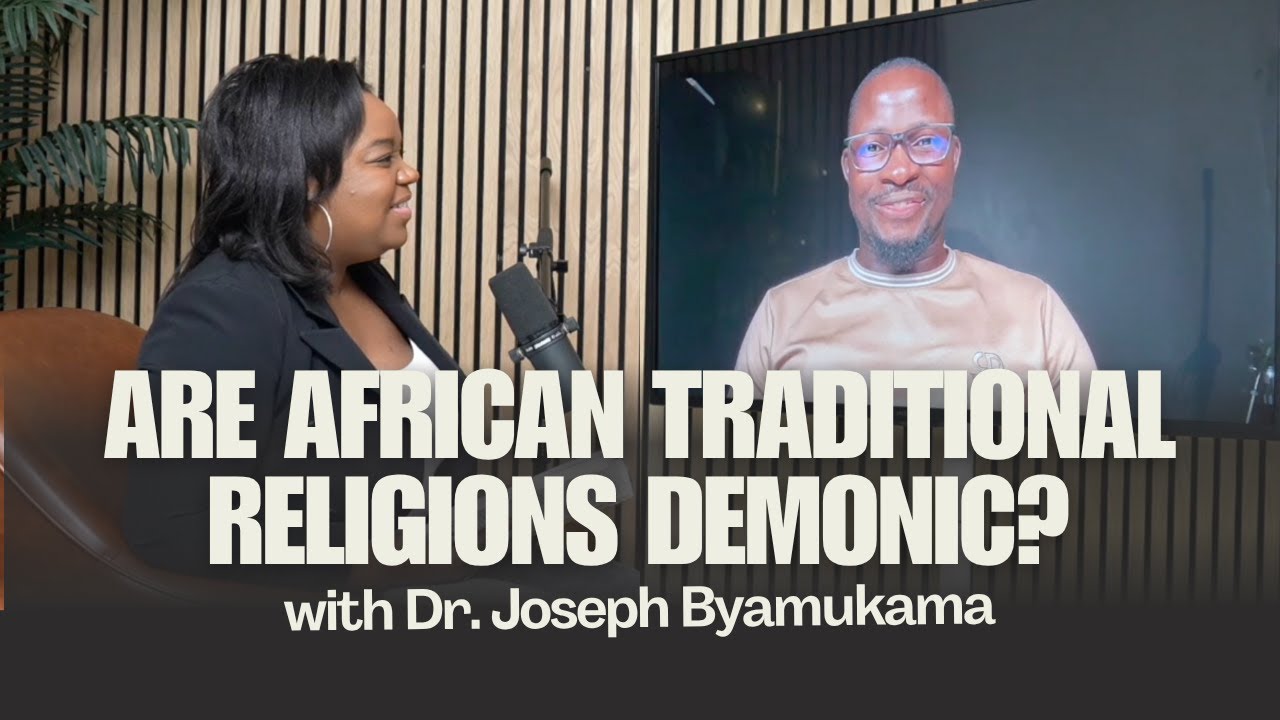J3 Project podcast, host Lisa Fields interviewed Dr. Joseph Byamukama, a New Testament scholar and founder of Veracity Found, an organization dedicated to providing contextual theological resources to the Ugandan church. Dr. Byamukama, who also helped plant The Found Church in Kampala, shared profound insights from his doctoral research on how the book of Isaiah influenced Luke’s portrayal of Jesus in the book of Acts [02:26:00]. The discussion shed light on common misconceptions about African Traditional Religions (ATR) and their intersection with Christian faith.
Debunking Misconceptions about ATR
Dr. Byamukama addressed the misconception that Christianity introduced a new God to Africa, implying that Africans were animists without prior knowledge of the one true God [04:15:00]. He argued that God has always been present and active in Africa, and missionaries should have first sought to understand God’s existing work there [26:00].
Another prevalent misconception is that ATR involves numerous gods vying for supreme status. Dr. Byamukama clarified that traditionally, Africans believed in one supreme creator, known by various names like Rohanga or Katona, distinct from lesser deities associated with natural elements [05:49:00]. The idea of God withdrawing from humanity due to sin, similar to the Genesis narrative, is also common in many African cultures, leading to a belief that God’s proximity could be dangerous [07:57:00]. This perceived relational gap often led to the reliance on intermediary figures like ancestors or deified natural phenomena [09:36:00].
African Spirituality, Monotheism, and the “Orisa”
While often perceived as polytheistic, Dr. Byamukama explained that ATR, in some aspects, exhibits monotheistic tendencies due to the understanding of a supreme God [07:02:00]. He clarified that “Orisa” in the Yoruba tribe can refer to the universal God who created all things, unrestricted by geographical or ethnic boundaries [01:53:00]. It can also refer to the pantheon of gods that bridge the relational gap between the transcendent supreme God and daily life [01:46:00].
The Harmful Demonization of African Spirituality
A tragic consequence of missionary and colonial encounters has been the tendency to label everything African as demonic [01:53:00]. This has unfortunately led some people of African descent to view Christianity as a colonial religion. Dr. Byamukama emphasized that God’s presence in Africa predates Christian missionaries, evidenced by the existence of African names for God in local languages [02:45:00]. He suggested that missionaries should have first affirmed what the Gospel confirms in African sensibilities (like the belief in a supreme being), then clarified, and finally confronted aspects that needed correction [02:26:00].
Fear of Death and Polygamy
The traditional African fear of death, rooted in the belief that one’s identity dissolves if not remembered by living descendants, contributed to practices like polygamy [02:34:00]. Having many children, often through multiple wives, was a way to ensure remembrance and avoid oblivion after death [02:49:00]. Dr. Byamukama highlighted the Christian doctrine of resurrection as a beautiful and redemptive teaching that directly addresses this fear, offering hope that personhood does not dissolve at death [03:58:00].
Witchcraft and the Doctrine of Suffering
Witchcraft remains a significant concern in Africa, with some individuals returning to ATR when Christianity doesn’t seem to offer immediate solutions to their problems [03:21:00]. Dr. Byamukama defined witchcraft as manipulating spiritual powers to harm others [04:42:00]. He noted that Africans traditionally had a transactional relationship with gods, seeking solutions rather than loving God for His own sake [03:27:00]. This mindset can unfortunately transfer to Christianity, leading to pastors being treated like witch doctors [03:37:00].
He also pointed out that a lack of understanding of the doctrine of suffering in many African churches leads people to believe that suffering indicates falling out of God’s favor [03:52:00]. This can drive them back to witchcraft when prayers for relief are not immediately answered [04:01:00]. Dr. Byamukama stressed the importance of teaching that God protects against witchcraft and that His will may involve suffering for growth [04:18:00]. While not all individuals in African religions practice witchcraft, there is a widespread awareness of its reality [04:11:00].

Leave a Reply